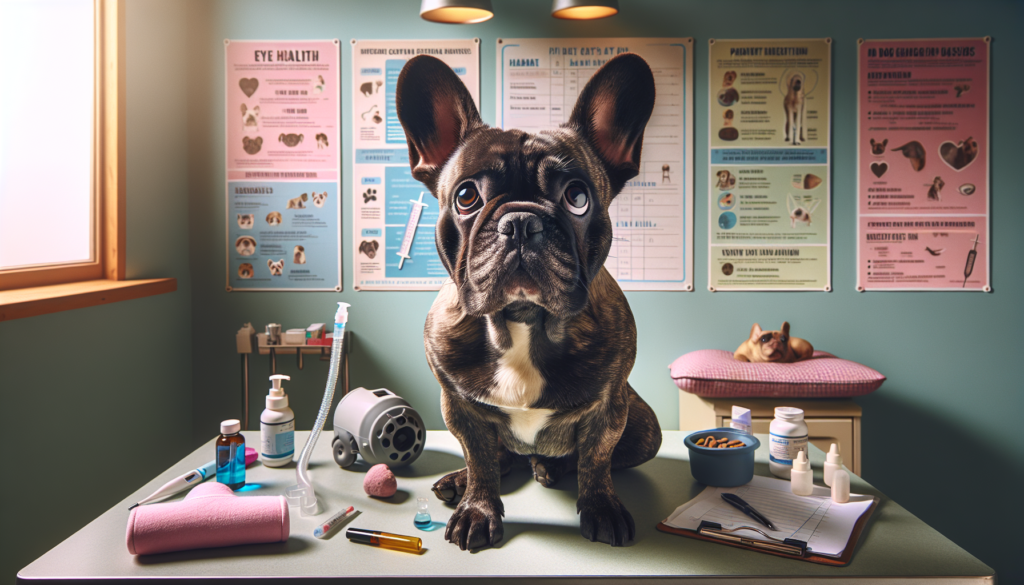
French Bulldogs are one of the most beloved and recognizable breeds of dogs in the world, and it’s not surprising given their friendly, lovable nature and wide range of possible coat colors. However, because of their unique physical characteristics and the historical inbreeding of their ancestors, French Bulldogs are susceptible to a wide range of health issues. This includes genetic disorders, joint problems, airway abnormalities, and eye problems. Although these health issues generally won’t prevent a French Bulldog from enjoying a healthy and active life, it’s important for potential owners to understand the existing health problems that French Bulldogs can have so that necessary steps can be taken to ensure the pup remains free from illness.
Hereditary and Congenital Conditions
Hereditary and congenital conditions are inherited from the parents or are present from birth. French Bulldogs have a higher incidence of certain diseases than other breeds, including congenital deafness, seizures, hip dysplasia, hydrocephalus, cherry eye, and cleft palate. These conditions can affect a pup’s well-being, ranging in severity from mild discomfort to life-threatening illness.
Hip Dysplasia
Hip dysplasia is a condition in which the dog’s hip joints are abnormal. In French Bulldogs, whose anatomy includes a shorter rear end, this can cause added strain on the hips, leading to the development of the condition. Symptoms vary but may include decreased activity levels and difficulty walking, climbing stairs, and jumping. Hip dysplasia is generally managed with anti-inflammatory drugs, a restricted diet, supplements, physical therapy, and surgery if necessary.
Cherry Eye
Cherry eye is a condition in which the gland that produces tears, located in the third eyelid, becomes enlarged and protrudes from the eye. This causes an uncomfortable, red mass that may require surgery to correct.
Cleft Palate
Cleft palate is an abnormality in the roof of the mouth that can cause difficulty eating, sleeping, and breathing. Most cleft palates can be corrected through corrective surgery, although it is important to note that it may not be possible to repair the palate if it has been present for too long.
Genetic Diseases and Disorders
In addition to hereditary and congenital conditions, French Bulldogs can suffer from several genetic diseases and disorders, including narcolepsy, neuropathy, and luxating patella. These conditions are caused by genes that are passed down from the parents, meaning that two parents with healthy genes can still give birth to a pup with a genetic disorder.
Airway Abnormalities
French Bulldogs have an elongated soft palate, causing the back of their throat to close up when they exert themselves. This can lead to difficulty breathing, snoring, and other airway problems. It is recommended that French Bulldogs be monitored for potential airway problems, and veterinarians may prescribe medications and supplements to help keep the airways clear.
Eye Problems
Due to their short snout, French Bulldogs’ eyes are more exposed than other breeds’, leading to an increased risk of eye problems. Common issues include cherry eye, dry eye, cataracts, and glaucoma. Owners should keep an eye out for any symptoms of eye problems and take their pup for a checkup if any problems arise.
It’s important to note that French Bulldogs are not inherently unhealthy and that they can live a long and happy life if they are provided with proper medical care and nutrition. If you’re considering adopting a French Bulldog, it’s best to do your research, understand the necessary medical care, and have a thorough understanding of the potential health issues before going ahead. With proper care, your pup can live a long and healthy life, free from any health problems.
In conclusion, French Bulldogs may suffer from a variety of health issues, including hereditary and congenital conditions, genetic diseases and disorders, airway abnormalities, and eye problems. It is important for potential owners to understand these issues and the associated prevention and treatment methods so they can provide the necessary care and attention to their pup to ensure its well-being.
Related Info And Products:
- Do French Bulldogs Have A Lot Of Health Issues?
- Do French Bulldogs Have Health Issues?
- Why Do French Bulldogs Have So Many Health Problems?
- Do French Bulldogs Have A Lot Of Health Problems?
- Do French Bulldogs Have Health Problems?
- What Health Problems Do French Bulldogs Have?
- What Percentage Of French Bulldogs Have Health Problems?
- What Is 4 Panel Health Test French Bulldog?
- What Do French Bulldogs Usually Die From?
- What Kind Of Problems Do French Bulldogs Have?
- Do French Bulldogs Have Breathing Problems?
- What Problems Do French Bulldogs Have?
- How Do You Breed French Bulldogs?
- Why Do French Bulldogs Snore?
- What Were French Bulldogs Bred To Do?